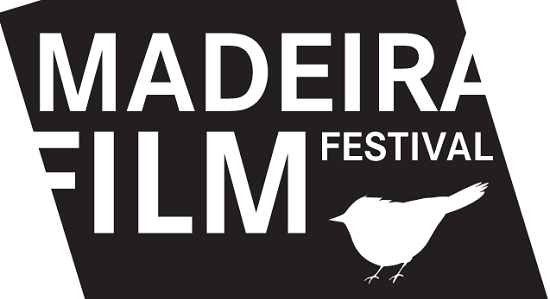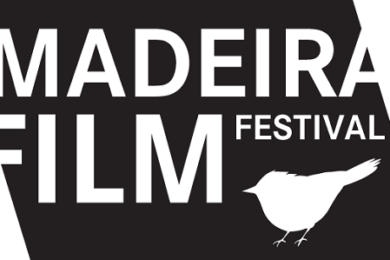Now in it’s fourth year, the Madeira Film Festival marks itself out from its international competition via its extraordinarily beautiful location, commitment to conservation issues and small scale, easily negotiable programme. Here are some things that the Quietus learned about the island and the festival when we were invited to attend.
Strange things start feeling normal if enough of them happen
“Has anyone seen the President of Bulgaria..?”
At any other time the question could have struck me as peculiar – if someone had asked me in the pub, say, or on a P&O ferry. Here in Madeira’s capital city of Funchal, crammed into the back of a 1920’s Chevrolet that resembles the sort of runabout that Mister Toad would rhapsodise over, about to go to the Madeira Film Festival’s opening night and already slightly tipsy from the fortified wine that bears the island’s name, it all clicks together like Duplo. No, I have not seen the President of Bulgaria, but if he suddenly clattered over the horizon dressed in medieval jousting armour and riding a white stallion I would barely be surprised. I am in Madeira. And strange things happen here.
Later on in the week, while travelling down in my hotel’s elevator to view some contemporary dance in the botanical gardens – a sentence that will probably make anyone reading this want to stave me in the head with a steel bar – my ears pick out a strange warbling sound coming from outside. The doors slide open and I am immediately confronted by the sight of a rotund middle aged woman in a floor length gown regaling the two people sat in the cocktail lounge to a enthusiastic set of German Lieder. It is such an absurdly joyous sight that I almost burst out laughing, but I hold it in because Frau Hassermann (as I have decided to call her) looks like the sort of madchen who could crush me with her thumb.
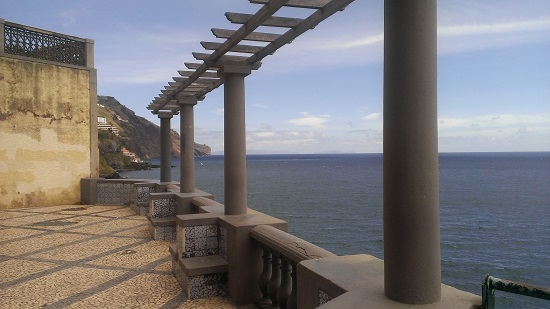
All this, and more besides, is ably helped along by the sheer quantity on Madeiran wine that accompanies every event of this fourth edition of the Madeira Film Festival. Despite it bringing back memories of stealing sips of Granny’s sherry when she wasn’t looking, I soon find myself developing a powerful yen for it. On the opening night meet-and-greet shindig I end up imbibing a considerable amount – not, perhaps Captain Haddock amounts, but certainly close to Snowy’s levels when he used to attack the Laphroaig – and am surprised when I feel my legs begin to buckle beneath me on the walk back to my hotel.
This sense of discombobulation is assisted by the hotel itself, an extraordinary establishment called Reid’s Palace, who have been partners of the festival since it’s beginning. Its comparative emptiness and unbelievable opulence suggest a remake of Last Year At Marienbad featuring Inspector Clouseau, while the size of the pool table in the games room suggests Land Of The Giants. Indeed, I feel dwarfed by my surroundings. The hotel is a maze of endless lounges and corridors, mirrors and candelabra and, most alarmingly when I return home from the opening, a mirror that, shuffle about as I might, doesn’t seem interested in showing my reflection. Although that could have been the wine.
Needless to say I have a tremendous time wandering around the endless corridors looking for icy veined women in expensive cocktail dresses, single tears on their black and white cheeks. At least that’s what I think I’m doing. Thanks to my fellow guests for not reporting the sunburnt drunk in the hotel bathrobe cackling to himself and waving a Dictaphone around.
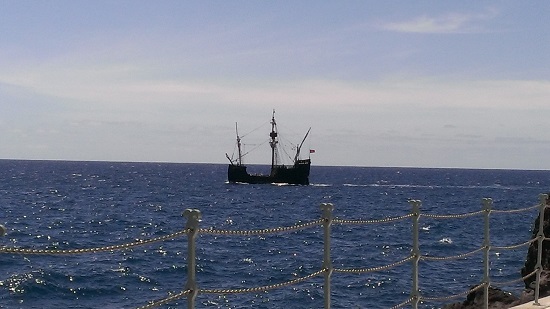
Was that a galleon?
My God but you’re lovely
Flying in to Madeira you’re just close enough to see how extraordinarily beautiful it is, with deep craggy fissures gouged into an island overflowing with rich greenery. Here and there it’s possible to see abandoned buildings jutting out of the landscape like cracked teeth, while in the waters over to your right, islands rear from the sea like the bony heads of submerged brachiosaurs.
The beauty of the island would surely make it a dead cert for use as a location (I speak to more than one director present at the festival who lets on to a desire to use it for just that) and one of the festival’s stated aims is to attract film makers to Madeira. There are problems though. There isn’t much film equipment on the island, and its relative isolation makes it prohibitively expensive to ship over. I speak to Aitken Pearson, the festival CEO about this problem: “The infrastructure is here. It’s easy to get from one end of the island to the other and the locations here are wonderful. We just don’t have the equipment. If we can establish an efficiently funded Madeira film commission, so we could buy jigs, cranes, cameras, then theoretically Madeira could become an inexpensive place to shoot as it would be affordable and accessible.”
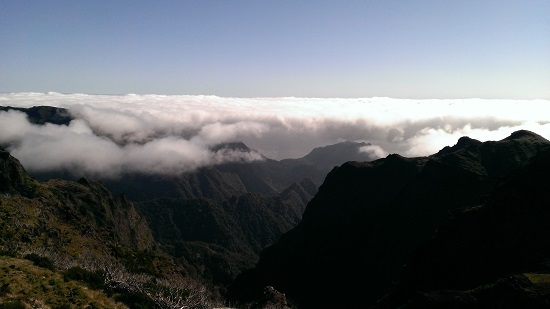
Standing at the highest point on the island, 1800 metres above sea level, you can understand Aitken’s enthusiasm. The view is breathtaking, and clouds roll through the peaks below for as far as the eye can see. It is also breathtaking when, like an idiot, I decide to try and be Hunter Thompson, light a cigarette and practically collapse from the pressure on my lungs.
We like short shorts

The Festival kicks off properly with a showing of Benedict Erlingsson’s Of Horses And Men at Funchal’s ornately beautiful Municipal Theatre. A sort of darkly comedic cross between Bela Tarr and Monty Python, the film seesaws between absurdity and pathos with grace and manages to be transporting enough to get me over my life long fear of horses for its duration, as well as setting up one of the festivals themes, that of depictions of ugly all weather clothing. A lot of the rest of the feature programming rests upon films that have been out for a while here in the UK, but luckily there is an ambitious and eclectic selection of shorts being screened each afternoon at the theatre.
It’s a pleasure to be able to sit yourself in a dark screening room for a couple of hours with practically no idea of what you’re going to get shown, and it’s pleasing to see a pretty good turn out for the shorts. This very element of the unknown can make these events quite a hard sell, but the audience are generally young, interested and inquisitive and the majority of the films reward the attention.
Of particular note are Martha Colburn’s violently kaleidoscopic stop-motion doll animation Metamorfoza, a meditation on Shostakovitch’s time in the Soviet Union that evokes artists such as Kenneth Anger and Hans Bellmer, while Demelza Kooij and Lars Koens Graminoids is a hypnotic pean to the power of wind through grass.

Anita Norfollk’s Onions For Vampires takes a very different approach. A documentary about the director’s schizophrenic brother, a man who seems to believe literally everything he sees, it’s moving, funny and sad, told with a family member’s insight that stops it from falling into sentimentality.
Of the short features on show I enjoy Daniele Campea’s Baull, a grim little horror fable which confirms the medium’s suitability for the genre with some genuinely scary moments, while Ian Waugh’s As He Lay Falling, a short tale of alienation, sex in the aforementioned all-weather clothing and murder, uses its Scottish Highland location with a blunt matter-of-fact force.
Indeed it turns out that short films have a very particular place in Portugese film making, which may explain the decent attendances. I talk to Lisbon based Antonio Lopez, director of the charming historical smuggling drama Fronteira about the medium’s high profile at the festival: “In Portugal we have a programme funded by the government to create full features but it’s very hard to get on. You have to be known as a producer or a director to be able to get funding, but it’s hard to get known if you don’t get the funding, so it’s a closed loop. For us as students of film its very important to make short films because that allows us to get known. Short films are important everywhere but maybe here in Portugal the importance is a little bigger. It’s the only way we have to express ourselves.”
It’s Small But Perfectly Formed
Madeira Film Festival succeeds through its balance of relative modesty and ambition. The programming is sharp and incisive, the venues for the showings quietly beautiful and the surroundings are gorgeous. However there is a larger subtext, as Aitken puts it: “I don’t think we’ll ever become a pilgrimage festival, where people come from all over the world, like Sundance or Cannes. I think we’ll always be a small intimate festival, where people who come can forge relationships easily. However our stated aim, if you like, is to esteem and acknowledge the Laurissilva forest of Madeira as a heritage site. And we hope through the Madeira festival to help raise awareness of its preservation and conservation.”
Finally flying back home, taking a last look at the island’s extraordinary peaks of lush green, it’s hard not to want to raise a glass to that.
Turns out that drinking at high altitudes isn’t too smart either.
Monarch, the scheduled leisure airline, operates year round flights to Madeira from Birmingham and London Gatwick airports with fares, including taxes, starting from £44.99 one way (£94.98 return)www.monarch.co.uk

